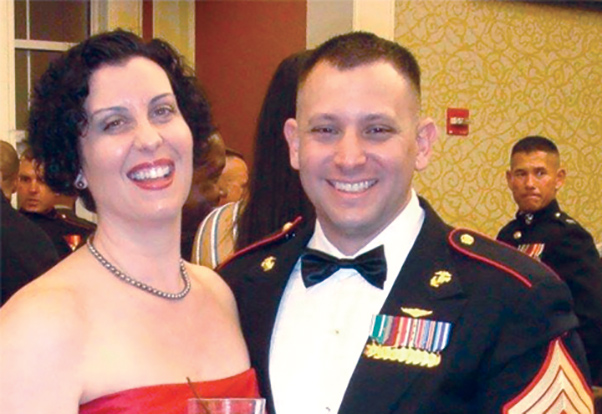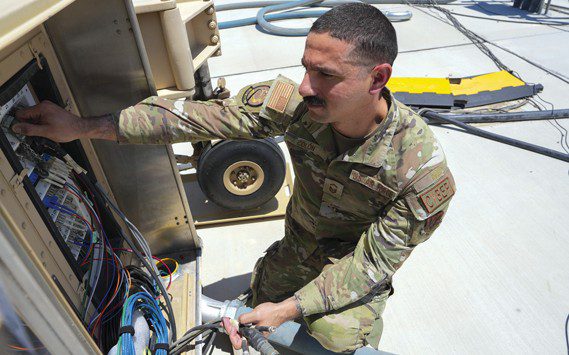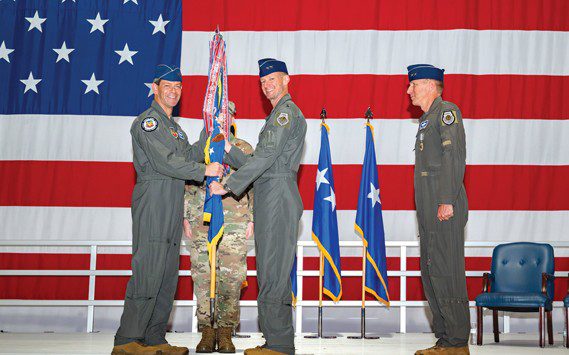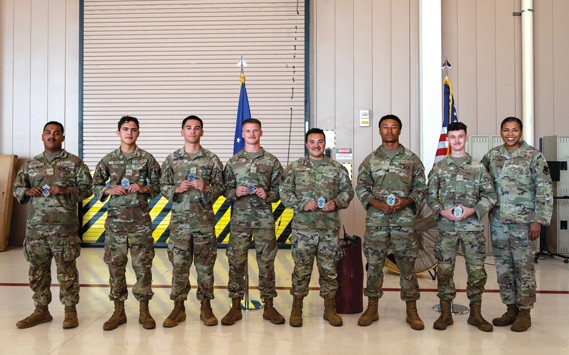When Adam Wilner medically-retired from the Marine Corps in 2017, his DD-214 said he had completed 24 years of service. His body and mind, however, had experienced a lifetime’s-worth of grueling physical training, deployments, injuries and surgeries.
Adam’s Marine career saw him performing several physical and mentally-taxing jobs. He served as a communication security specialist, a Marine Corps martial arts program instructor and a recruiter.
Before his separation, he began experiencing constant back pain and his leg would “go out on him” while walking and standing. Adam’s wife Bobbie was there for him and an integral part of his recovery following his first back surgery in 2015.
“The pain and weakness began to interfere with normal activities and made most of his hobbies a thing of the past,” Bobbie said. “That, combined with his psychiatric issues meant that I needed to cease working and focus on being his full-time caregiver.” Bobbie, who had a background in healthcare, didn’t hesitate. “It’s different when it’s someone you love,” she said.
The Wilners met in North Carolina in 1997 and were married in January 1999. They have one daughter, Sonya, and a four-year-old granddaughter. Their relationship has seen them move 11 times during those 20 years; with five permanent changes of station and several deployments. While that kind of strain is something that can challenge even the strongest families, Bobbie was prepared for the military lifestyle.
“Both of my parents are former Marines and being a sergeant major’s daughter certainly prepared me for a Marine family of my own and gave me the ability to adapt to new situations and places,” she said. “Our relationship has weathered and thrived throughout deployments, floats, work-ups, schools, recruiting duty, injuries, surgeries, a house fire and retirement. While our new normal isn’t what we would have chosen for ourselves, we both are adapting and try our best to make the most of it.”
One of the most difficult adjustments came after Adam’s retirement. His career left him with several service-connected disabilities including a degenerative disk disorder resulting in two spinal fusion surgeries, PTSD and migraine headaches.
Because he was unable to perform many day-to-day activities, Bobbie became a full-time caregiver.
She researched support options, and was admittedly hesitant when she first discovered the Caregiver Support program through the VA. “When we learned of the program, friends had told us that it was too difficult to be accepted into. But we decided to give it a shot.”
VA Southern Nevada offers resources and support to caregivers of qualified Veterans of all ages and service eras. Enhanced services for eligible participants may include a financial stipend, access to health care insurance, mental health services and counseling, caregiver training, and respite care.
“The caregiver support program has been an integral part of my ability to care for my husband as it not only helps to offset my loss of income, but it empowers me to be a better caregiver through educational resources and the aid of my support coordinator,” Bobbie said. “The program provides me opportunities to learn more about my husband’s health conditions as well as how to better care for him and myself in the process. It gives me access to information I may not otherwise have about caregiving as well as the benefit of other caregivers’ experiences. I know that when issues arise, our coordinator is there, ready to help, which is a great source of comfort. Navigating the VA system can be very stressful and knowing that a helping hand is only a phone call away makes the Caregiver Support Program and our coordinator invaluable resources for our family.”
For veterans and their families who are unsure if they qualify or if the program is right for them, the Wilners have one simple message. “Apply. While the process was not a short one, it is worth the time and effort. When we (as caregivers) are empowered, we can provide quality care to our vets and in the end, that is what it’s all about.”
For more information about local caregiver support services, contact VASNHS’ caregiver support coordinator at 702-791-9000, Ext. 13051, or visit https://www.caregiver.va.gov/.
Caregiver support coordinators are available at every VA medical center to assist veterans and their caregivers with the application process. Additional application assistance is available at 1-877-222 VETS (8387).












